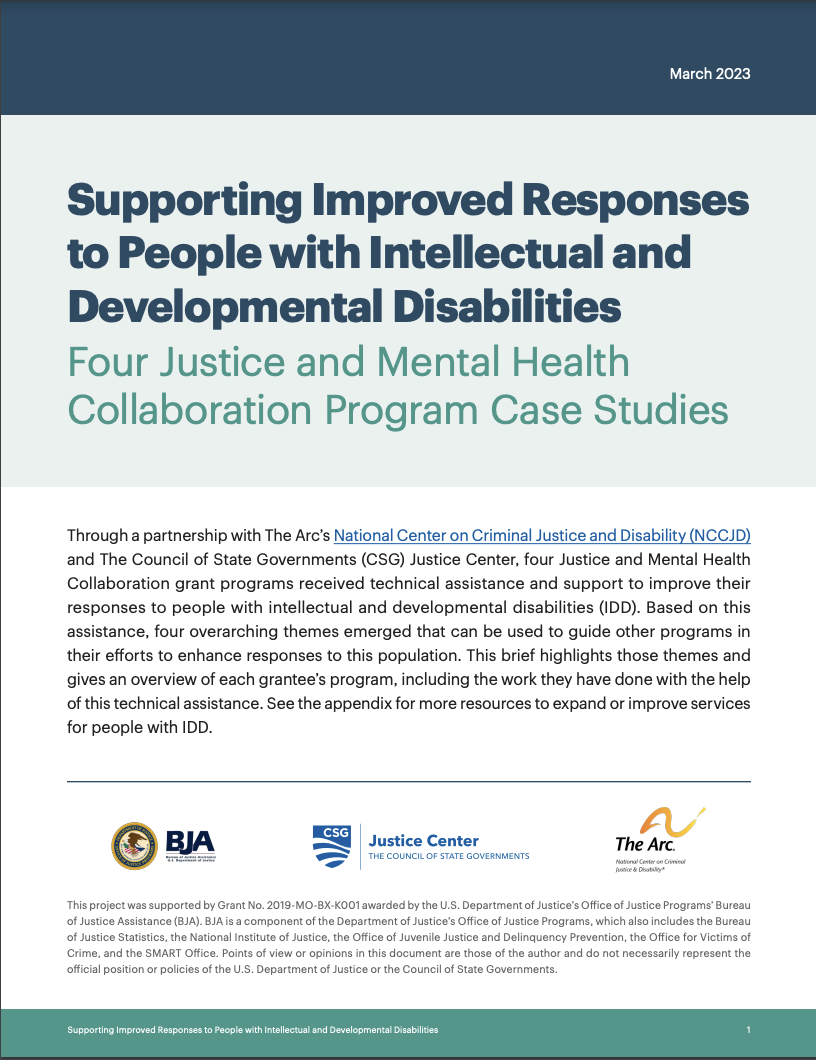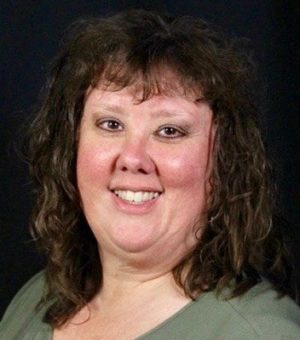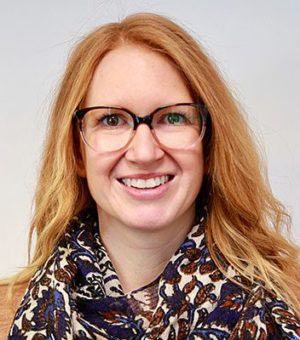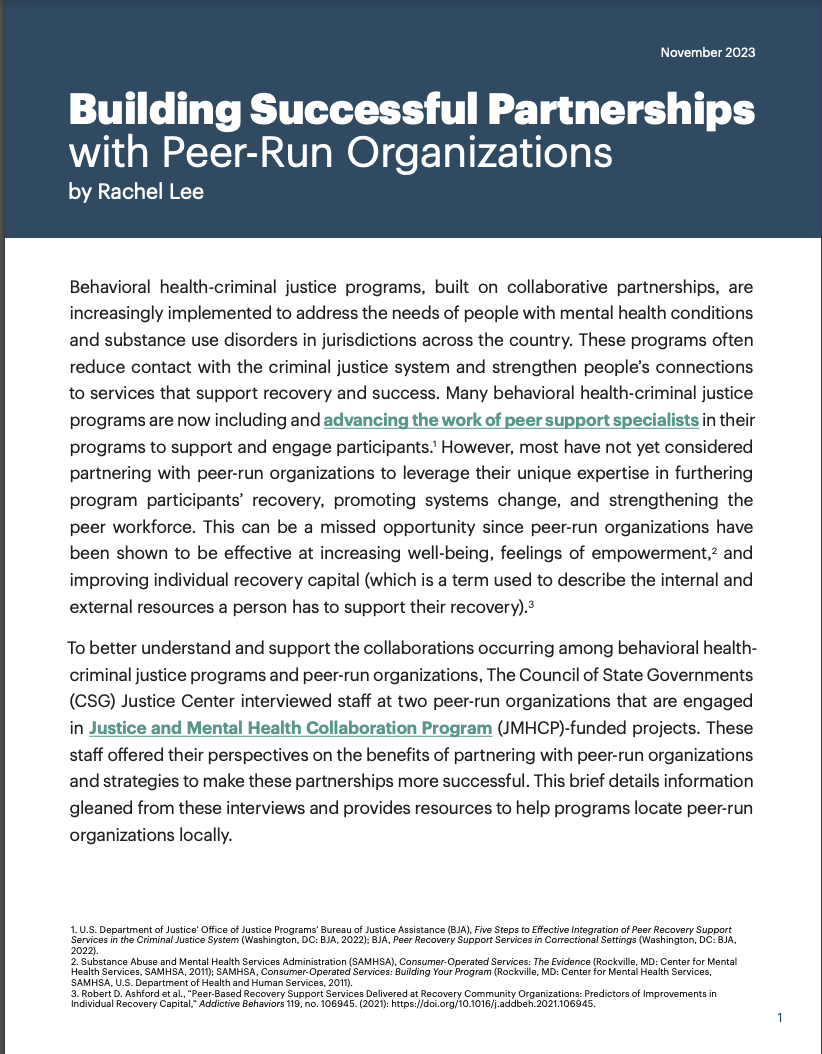Mental Health
People with mental health conditions—including those with serious mental illnesses such as bipolar disorder and psychosis—face disproportionate contact with the justice system. Once in contact with the justice system, too often, they do not get access to needed supports while in custody or preparing for reentry.
To address this, with the support of JMHCP, communities across the country have started implementing interventions at each point in the criminal justice system, from law enforcement contact to reentry, to connect people with appropriate mental health care and divert them to treatment whenever possible. These interventions include building crisis stabilization units, implementing mental health treatment courts, embedding clinicians in jails, using telehealth services, developing comprehensive case plans, and more.
Center for Justice and Mental Health Partnerships

Collaboration Spotlight

The collaboration between the Houston Police Department and The Harris Center for Mental Health and IDD—our local mental health authority—has been the reason for the many successes we have accomplished in better serving our community, particularly those who are living with or affected by mental illness.
Sergeant Rebecca Skillern, Mental Health Division, Houston Police Department
Selected Resources

Supporting Improved Responses to People with Intellectual and Developmental Disabilities
Mental Health
Key Staff

Allison Upton
Deputy Program Director, Behavioral Health
Allison Upton provides technical assistance to grantees and supports policy development and projects specializing in the intersection of criminal justice and behavioral health issues. Prior to joining the CSG Justice Center, Allison worked at the Center for Alternative Sentencing and Employment Services (CASES) as the director of court programs, where she oversaw the court and community operations of several alternative-to-incarceration (ATI) and detention programs serving adults with behavioral health needs in New York County. While at CASES, she developed a gender-specific track of ATI services for women involved in the justice system and provided training on evidence-based practices in screening/assessment in justice settings, gender-responsive recidivism risk assessment, trauma-informed case management practices, and cognitive behavioral group interventions aimed at minimizing risk of recidivism. Allison previously worked as a staff psychologist in inpatient services at the Manhattan Psychiatric Center and as the director of an outpatient program at the Bronx Children’s Psychiatric Center. She received her BA from the University of Miami and her MS and PsyD in clinical psychology from Nova Southeastern University.

Marilyn Leake
Senior Policy Analyst, Behavioral Health
Marilyn Leake works on county-based initiatives focused on improving outcomes for people in the criminal justice system who have behavioral health disorders. Prior to joining the CSG Justice Center, Marilyn served as the coordinator for the mental health and drug court programs in Prince George’s County, Maryland. In that role, she collaborated closely with local stakeholders throughout the criminal justice and behavioral health systems on diversion and other tactics to improve outcomes for people in the justice system with behavioral health disorders. She also worked on initiatives to standardize data collection and measurement strategies for treatment courts in Maryland. Marilyn holds a BS from Appalachian State University and an MSW from the University of Maryland.

